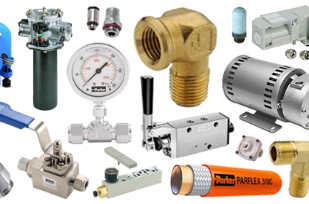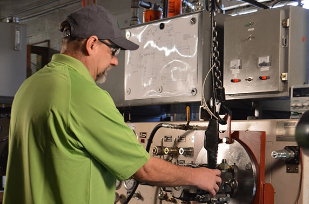
What are the most common workplace accidents? They are slips, trips, and falls, handling a heavy object or an object hitting/falling on someone. And they can happen in any business.
Large companies have tried-and-tested safety precautions in place. They likely have a team of people focused on improving workplace safety.
If you work at (or run) a small business, you also need to be on top of ensuring your workplace is safe for yourself and your employees. This guide will explain how you can make this happen.
1. Regular Team Meetings
If you are not talking to each of your team members on a regular basis, you or a staff member could overlook an important safety issue. Small businesses consist of less than 50 employees, which is a reasonable number to touch base with one-on-one at least every quarter.
Employees are unlikely to volunteer concerns when they have other tasks to keep them busy. Regular team meetings allow everyone to voice ideas about improving workplace safety.
Once someone identifies an issue, you can work through the job hazard analysis template to address it.
2. Invest in Safety Equipment
By law, your employees should all have the appropriate Personal Protective Equipment (PPE). For example, if you run a live music venue, you should provide your staff with earplugs. If you run a landscaping business, your staff should have gloves.
Most workplaces need:
- Fire extinguishers and alarms
- Warning and wet floor signs
- Chemicals with clear labels
- Safety signs
Refresh yourself on the proper guidelines and invest in extra equipment.
3. Train (and Retrain) Staff
Are you confident your staff is up-to-date on all safety matters? If not, it might be time to refresh their workplace safety training.
Most businesses should give their employees fire safety training every 12 months. Health and job-specific training are also essential at least once a year. The type of training will depend on your workplace.
4. Create Safety Officer Roles
If you have up to 50 employees, at least one should be first aid trained. Nominating safety officers to spot and report a workplace safety hazard could also improve workplace safety.
Then, it is someone’s responsibility to make sure their department is clean, organized, and reports any concerns to management. It improves compliance when it is someone’s designated role.
5. Reward Your Team for Safe Behavior
If you are serious about improving workplace safety in your small business, incentivize your staff! Make sure they know you appreciate their efforts when there are so many days/weeks/months without an incident.
Reward them with a Friday afternoon off, a box of donuts, or even a small bonus.
This is much easier to do in a small business because you can make rewards more personalized and show you care. And your team is more likely to care about safety!
You could also ask the safety officers in each department to nominate extra safe employees every month or quarter.
Make Improving Workplace Safety a Priority
Improving workplace safety may not increase your profits, but it will keep your business legal and safe.
As long as you follow guidelines and make decisions with safety in mind, there is no reason why your business cannot thrive and grow.
Like this article? Check out our other business posts for more tips and advice!





